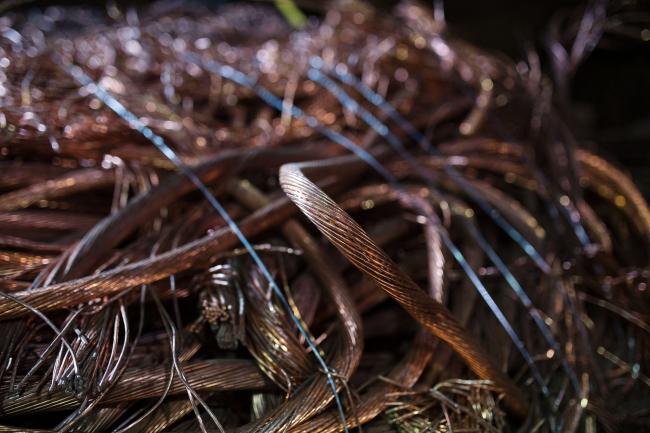(Bloomberg) -- After Red Kite co-founder David Lilley left London’s best-known metals hedge fund last year, there’s been mounting speculation that business partner Michael Farmer might call time on a career that’s spanned six decades.
Instead, Farmer, 74, is putting capital into a new hedge fund run by one of Red Kite’s senior traders.
Red Kite launched the fund, called RK Trinity, last week. It’ll be run by George Daniel, a senior trader who helped oversee Red Kite’s Tamarisk fund until it was wound down last year, when manager Tim Jones retired. Jason Kay, who worked with Daniel at Bank of America Merrill Lynch (NYSE:BAC), has joined as a senior trader for the fund.
Daniel and Farmer used a “small amount” of their own capital to seed the fund, which will mainly pursue short-term trades in base and precious metal futures, as well as spreads and options, Daniel said in an interview. As it grows, they’ll look for external investors.
As a member of the U.K.’s House of Lords and a devout Christian, Farmer spends much of his time pursuing political and personal causes, but he’s still in the office regularly and follows the markets, Daniel said.
Market Ride
“He’s still incredibly passionate about it,” Daniel said at Red Kite’s offices, where bronze statues of a bull and bear face off against each other in the foyer, a nod to the firm’s success in riding metal markets since 2005. “These days, his enjoyment seems to come from seeing someone else doing well in the market.”
In its heyday during the commodities supercycle of the early 2000s, Red Kite managed about $3.5 billion and was responsible for supplying about 15% of the copper China was consuming. It’s since scaled back the bold, all-in style of trading that delivered big returns. The hedge fund also suffered heavy losses in other years, most notably in a controversial skirmish against Barclays (LON:BARC) Plc in the copper market around the start of the decade.
In April, the fund accepted a confidential settlement over claims traders at Barclays engaged in abusive trading and manipulated copper prices on the London Metal Exchange.
The end of the lawsuit fueled speculation in the industry that Farmer -- known in the industry as Mr. Copper -- might decide it was a good time to step back from trading. Over the past few years, Red Kite has reduced its physical trading as market volatility declined and larger rivals like Glencore (LON:GLEN) Plc and Trafigura Group Ltd. strengthened their grip over global flows of copper and other metals.
Lilley, who founded Red Kite with Oskar Lewnowski and Farmer in 2005, left the company last year for his own hedge fund firm, Drakewood Capital Management.
Other funds within the group have endured, including an arbitrage fund that Red Kite manages with China’s Maike Metals International and a mine-finance business that’s invested more than $1.6 billion since its inception in 2008.
Despite investor withdrawals, Tamarisk maintained a good track record with short-term trades that were easy to enter and exit, Daniel said. He’ll pursue a similar strategy at Trinity, with an additional focus on spreads and options.
Daniel is aware of the growing dominance of algorithmic traders in metal markets and runs his own models to judge when the automated strategies might shift direction. While Farmer has warned these funds are a threat in metal markets, Daniel said he’s not fighting their influence too aggressively.
“We’re not trying to be a target,” he said. “That’s been the cause of the demise of many funds in the past. The market has changed and they didn’t change with it.”
(Updates with background.)
